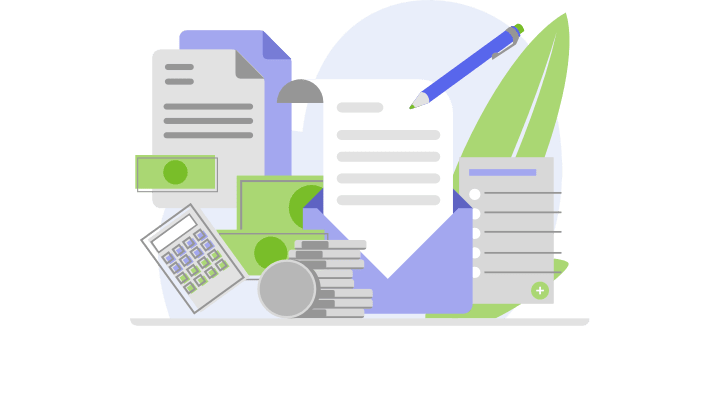
Notably, it costs more to augment a process than to mimic one because more technologies are required and combining technologies is complex. Augmenting an end-to-end process offers broader opportunities not only for automation, but also for process innovation. The best candidates for near-term AI enablement are dynamic processes that require judgment and involve unstructured, volatile and high-velocity data.
Smarter Finance – 5 Practical Uses for Intuitive AI in Accounting – CPAPracticeAdvisor.com
Smarter Finance – 5 Practical Uses for Intuitive AI in Accounting.
Posted: Mon, 30 Oct 2023 20:12:30 GMT [source]
Of course, CMAs, CPAs, CFOs/vCFOs, and other credentialed accounting professionals already aim for roles where they make strategic decisions. Bookkeepers may represent a group that feels more at risk for an AI takeover. For example, in the early days of bookkeeping software, accounting jobs changed drastically. Intuit, launched in 1983, and Microsoft Excel, launched in 1985, did not, in fact, represent the demise of human bookkeepers, as many feared. AI is a valuable accounting tool that can streamline data entry and analysis and help business accounting systems become more accurate and reliable. However, AI can’t replace many financial sector elements that require a personal touch.
Guardrails And Governance: Applying STAGE And TOTAL Security To Machine Learning
In more than a century of the assembly line, factories may now use increasingly sophisticated robots, but they still don’t make cars without humans. Recognizing this new AI era, the American Institute of CPAs announced a series of initiatives to help members become educated about generative AI and best manage its use. At some point in your life–probably close to when you got your accounting degree–you’ve likely asked a question.

But with each leap in AI, we move closer to a more symbiotic relationship between humans and machines—one that will inexorably change the lives of accountants, bookkeepers and their clients. Enhanced forecasting will enable you to optimize pricing strategies and more readily identify growth opportunities. Beyond that, AI forecasting models dynamically adjust based on changing market conditions, ensuring up-to-date predictions that deliver ROI. This wastes large amounts of time and money and has the potential for manual mistakes that can impact your general ledger. By contrast, cloud-based automation conveniently centralizes and continuously updates your data.
Take Advantage of Using AI in Your Firm
Explore more posts in this blog series, The Future of Finance with Generative AI, to learn more about how to streamline and enhance critical F&A functions and improve your finance operation’s efficiency with generative AI. Whether you’re a CFO, an accountant, a financial analyst or a business partner, artificial intelligence ai in accounting (AI) can help improve your finance strategy, uplift productivity and accelerate business outcomes. Though it may feel futuristic, advancements such as generative AI and conversational AI technology can benefit Finance & Accounting (F&A) now. The accountant’s role will evolve as AI becomes more integrated into our workdays.
- The experience of finance suggests that AI will transform some industries (sometimes very quickly) and that it will especially benefit larger players.
- Organizations must take proactive steps now to ensure they are prepared for the future of accounting and finance, which is increasingly automated through artificial intelligence (AI).
- AI’s ability to rapidly and comprehensively read and correlate data combined with blockchain’s digital recording capabilities allows for more transparency and enhanced security in finance.
- Artificial intelligence in accounting is currently transforming the industry.
- Vic.ai is an AI-powered invoice processing tool with high accuracy rates and advanced machine learning algorithms.
- Check out our reviews of the best accounting and invoice software to get started.
- One action is implementing secure, AI-first intelligent workflows to run your enterprise.
However, getting started with accounting AI can be a daunting task for many organizations. AI analyzes financial data to identify tax deductions and credits, saving time and helping firms minimize tax liability. By budgeting and forecasting software, accounting firms can automate and streamline these processes, resulting in significant time and cost savings. The findings also reveal an opportunity to communicate with students about other benefits of a career in accounting.
Generative AI and Risks to CPA Firms
However, the findings also uncover a disconnect in how a career in accounting should be promoted and what the next generation of accountants is looking for in an employer. As a tech journalist, Zul focuses on topics including cloud computing, cybersecurity, and disruptive technology in the enterprise industry. He has expertise in moderating webinars and presenting content on video, in addition to having a background in networking technology. Central to this framework is AI literacy, which involves understanding the different types of AI models, their functionality, and the potential benefits and risks they may introduce. There’s a significant untapped potential to broaden the awareness and usage of advanced, widely relevant technologies like AI and machine learning within the accounting and finance sectors. Automation and the best accounting professionals will make it useful by evolving into a more advisory role, doing business efficiently, and implementing new accounting automation technology, which leads to significant transition.

In a nutshell, cloud platforms offer much more robust security controls than on-prem counterparts. However, it is not a one-to-one shift-and-lift process to transform finance, risk and regulatory compliance to cloud-native capabilities. Cybersecurity has its new twists and turns due to the new capacities of ML on cloud platforms. It’s designed for accounting firms and businesses that want to streamline the billing and invoicing process. While accounting software and tax preparation programs increasingly include elements of AI, accounting remains largely a human process. Accounting professionals are, however, turning to AI to automate parts of the tax workflow, including manual data entry.
AI in Accounting: A Guide Written by Artificial Intelligence
With its ability to quickly analyze large datasets, it is revolutionizing the way accountants work today. Bank unlocks and analyzes all relevant data on customers via deep learning to help identify bad actors. It’s been using this technology for anti-money laundering and, according to an Insider Intelligence report, has doubled the output compared with the prior systems’ traditional capabilities. The decision for financial institutions (FIs) to adopt AI will be accelerated by technological advancement, increased user acceptance, and shifting regulatory frameworks.
Examples include complying with new accounting standards, reviewing expense reports and processing vendor invoices. With millennials and Gen Zers quickly becoming banks’ largest addressable consumer group in the US, FIs are being pushed to increase their IT and AI budgets to meet higher digital standards. These younger consumers prefer digital banking channels, with a massive 78% of millennials never going to a branch if they can help it. CEOs who take the lead in implementing Responsible AI can better manage the technology’s many risks.
For all its tantalizing potential to automate and augment processes, generative AI will still require human talent. Generative AI might start by producing concise and coherent summaries of text (e.g., meeting minutes), converting existing content to new modes (e.g., text to visual charts), or generating impact analyses from, say, new regulations. Producing novel content represents a definitive shift in the capabilities of AI, moving it from an enabler of our work to a potential co-pilot. Its platform finds new access points for consumer credit products like home equity lines of credit, home improvement loans and even home buy-lease offerings for retirement. Figure Marketplace uses blockchain to host a platform for investors, startups and private companies to raise capital, manage equity and trade shares.
- At the level of the individual analyst, the value proposition includes fewer repetitive tasks and keyboard strokes and more time for business collaboration.
- Cost is the principal hurdle in adopting technology, with expenses being a significant factor, particularly noticeable in the deployment of IoT applications where scalability and cost have historically hindered broader adoption.
- By leveraging AI-driven analytics, organizations can gain a strategic advantage by being able to make informed decisions about their resource allocation and future strategies.
- AI is particularly helpful in corporate finance as it can better predict and assess loan risks.
- The rev rec process has so many moving pieces that leakage is almost guaranteed unless the process is fully automated.
As much of bookkeeping, finance, and accounting are supported by technology, data becomes sharper… and more vast. Quickly accessing and making sense of it is a key advantage that AI unlocks. It’s essential to choose the right accounting software to handle your needs, including sending invoices, receiving payments and monitoring cash flow. Check out our reviews of the best accounting and invoice software to get started. We’ll explore the relationship between AI and accounting and share how to use AI to automate and streamline accounting while supporting skilled accountants and finance teams. Regularly monitor and evaluate the performance of accounting AI to ensure that it is meeting the desired goals and objectives.
Ensure that finance personnel understand how generative AI can complement their work and unlock their potential by automating routine tasks, accelerating business insights, and improving operational efficiency. At the level of the individual analyst, the value proposition includes fewer repetitive tasks and keyboard strokes and more time for business collaboration. Both accountants and businesses use artificial intelligence systems to streamline mundane and repetitive tasks. Although AI isn’t https://www.bookstime.com/ a substitute for accounting tasks that require complete accuracy or professional advice, it can act as a supporting tool to save time. AI can also provide real-time insights into a company’s financial performance, enabling businesses to identify potential risks and opportunities early on. Futrli’s machine learning identifies patterns, empowering firms to make informed decisions on risks and opportunities, as well as enhancing financial planning, risk management, and fraud detection.
